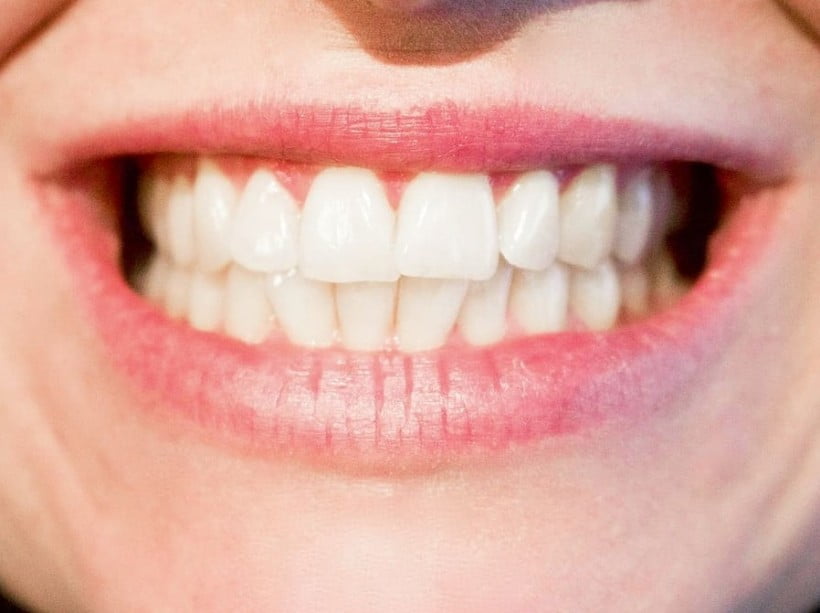What you Should Know About Wisdom Teeth
Warning: Undefined variable $post in /home/dietofli/public_html/wp-content/plugins/code-snippets/php/snippet-ops.php(584) : eval()'d code on line 3
Warning: Attempt to read property "ID" on null in /home/dietofli/public_html/wp-content/plugins/code-snippets/php/snippet-ops.php(584) : eval()'d code on line 3
The estimated reading time is 6 minutes
Warning: Undefined variable $post in /home/dietofli/public_html/wp-content/plugins/oxygen/component-framework/components/classes/code-block.class.php(115) : eval()'d code on line 3
Warning: Attempt to read property "ID" on null in /home/dietofli/public_html/wp-content/plugins/oxygen/component-framework/components/classes/code-block.class.php(115) : eval()'d code on line 3

Having good oral and dental health matters for your well-being, including the fundamentals of eating, socializing, laughing, and communicating. Bad oral health is easily preventable yet it is still one of New Zealanders' most common chronic health conditions of all ages. The Government of New Zealand spent $212 million in 2018/19 on oral health-related programs given or funded by the DHBs. Most oral health disorders are tooth decay, oral cancers, periodontal infections, oro-dental injuries, Noma (a type of gangrene that affects the mucous membranes in the mouth), and cleft palate and cleft lip.
What are Wisdom Teeth?
Any of the three molars per quadrant of human dentition is known as a wisdom tooth or a third molar. This is the most primitive of the three. The period of wisdom teeth eruption is not always the same but in general, it happens between late adolescence and early 20s. Many adults are said to possess four of them, one in each of the four quadrants, if there are more they are considered supernumerary teeth.
Wisdom teeth may get trapped (impacted) against and under or behind other teeth if there isn't enough room for them to move through freely. While this may not displace other teeth, it may lead to having difficult oral hygiene which can subsequently cause tooth decay. Wisdom teeth that are partly expelled through the gum can also cause inflammation and infection in the tissues of the outer gum, known as pericoronitis.
Impacted Wisdom Teeth
Wisdom teeth that cannot fully emerge through the gum are referred to as being impacted. They can develop in virtually every direction including:
- Straight upwards (vertical position) but without space to erupt in a position conducive to chewing food
- Distangular position, away from the remaining teeth
- Parallel (horizontal position) to the gumline
- Angled in front of the other teeth.
How to Detect an Impacted Wisdom Tooth
You will need to see a qualified dentist inquire about how your wisdom teeth are positioned. Be sure to keep to regular dental cleaning examinations with your dentist. Routinely having a dental X-ray can help to spot problems early and before painful signs or severe injuries occur, the dentist may perform an extraction of the tooth. When you have unpleasant signs such as discomfort or swelling, make sure to visit a dentist immediately. You can always request a booking online for a dentist.
The function of Wisdom Teeth
Wisdom teeth are thought to be "evolutionary antiques" and have been of help to our ancestors who ate diets composed of tougher foods such as reed plants and sticks. Wisdom teeth were said to be substitutes for when teeth wore out or dropped out.
Nowadays we don't need these replacement teeth due to modern advancements in our oral hygiene and even the introduction of softer diets; wisdom teeth, however, still grow. Our mouths should only contain 28 teeth but along with wisdom teeth, we've landed up with 32 teeth fighting for space.
Symptoms of Affected Wisdom Teeth
If wisdom teeth do not properly emerge, they also have visible symptoms. Although patients with affected teeth don't often have complications, some dentists say the replacement of wisdom teeth is often recommended to avoid potential problems.
An impacted or affected wisdom tooth could affect your other teeth and you may suffer any of the following:
- Overcrowding
- Baffling headaches,
- Harm to the bone and nerves
- Unexplained pain in the jaw
- Chronic gum disease (periodontal disorder)
- Bleeding gums
- Tenderness or irritation
- Bad breath
- Caries in the teeth.
Wisdom Tooth Removal
The most common treatment for an affected wisdom tooth is its extraction. Wisdom teeth extraction is usually done under local or general anesthesia by a dentist or oral surgeon. How easy it will be for your oral surgeon or dentist to remove your wisdom teeth depends on their skill and professionalism. You will be given a snapshot of what to expect for your pre-extraction test. It can be done as simply as any other tooth can be removed, even for wisdom teeth that have completely emerged from the gum.
However, in a situation where the wisdom tooth is under your gums and ingrained in the mandible (jawbone), the dentist will need to make an incision through the gums, then an extraction of the slice of the bone lying above the tooth is necessary. The tooth will also be pulled in small pieces, rather than removing it in one piece to reduce the amount of bone that has to be cut to get the teeth out. (1)
What Happens after Removal of Wisdom Teeth?
Dissolving stitches are used to close the gum where an incision has been made. Your dentist will tell you how long the stitches take to disappear (usually 7 to 10 days). Your dentist may put gauze over the extraction site and ask you to maintain pressure on it by biting your jaws together for up to an hour. It is to prepare for the development of a blood clot in the open tooth socket.
Blood clots are part of the cycle of regeneration; please try not to dislodge them. For certain cases, if you have an existing infection, antibiotics can be administered.
You will need to avoid the following during the 24 hours after your wisdom teeth are extracted:
- Rinsing out your mouth with fluids
- Smoking and alcoholic drinks
- Tough physical exercise
- Hot liquids such as soup or coffee.
How Long Does it Take to Recover from Wisdom Teeth Extraction?
The extraction of wisdom teeth is among the most common dental surgery. After the removal of wisdom teeth, it may take up to 2 weeks to recover completely. Looking after the wound carefully will enable your mouth to heal as easily as possible. (2)
How Long Should Wisdom Teeth Hurt?
In two to three days, the swelling in your mouth and cheeks should improve. In 7 days the dentist can remove any remaining stitches. Any jaw stiffness and remaining discomfort should go away in around 7 to 10 days. After 2 weeks any other mild facial bruising should have healed. (3)
What Does Wisdom Teeth Extraction Cost?
The average cost of extracting wisdom teeth is $180 to $450 for one wisdom tooth depending on the complexity. To extract two wisdom teeth will be $320 to $1000, for three $465 to $1250, and $550 to $1650 for four.
Why are they called Wisdom Teeth?
They are so-called because of the general thought that their late appearance, that is, pretty much after other teeth must have erupted, takes place when people are wiser than as a child when basic teeth develop.
Are Wisdom Teeth Included in the 32 Teeth?
On the upper jaw are the teeth numbered 1 - 16. The teeth numbered 17 - 32 are located in the lower jaw. For example, the wisdom teeth are numbers 32, 17, 16, and 1. Teeth numbers 14 and 15 are the molars on the upper left.














